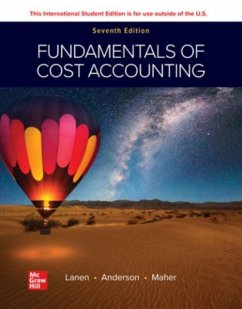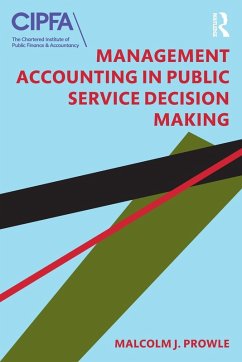
ISE Accounting for Decision Making and Control
Versandkostenfrei!
Versandfertig in 2-4 Wochen
88,99 €
inkl. MwSt.

PAYBACK Punkte
44 °P sammeln!
Accounting for Decision Making and Control provides students and managers with an understanding appreciation of the strengths and limitations of an organizations accounting system, thereby allowing them to be more intelligent users of these systems. Zimmerman provides students with a framework for understanding accounting systems and a basis for analyzing proposed changes to these systems. Consistent with prior editions, the goal of the new 10th edition of Zimmerman strives to demonstrate to students that Managerial Accounting is an integral part of the firm's organizational architecture, not ...
Accounting for Decision Making and Control provides students and managers with an understanding appreciation of the strengths and limitations of an organizations accounting system, thereby allowing them to be more intelligent users of these systems. Zimmerman provides students with a framework for understanding accounting systems and a basis for analyzing proposed changes to these systems. Consistent with prior editions, the goal of the new 10th edition of Zimmerman strives to demonstrate to students that Managerial Accounting is an integral part of the firm's organizational architecture, not just an isolated set of computational topics.












